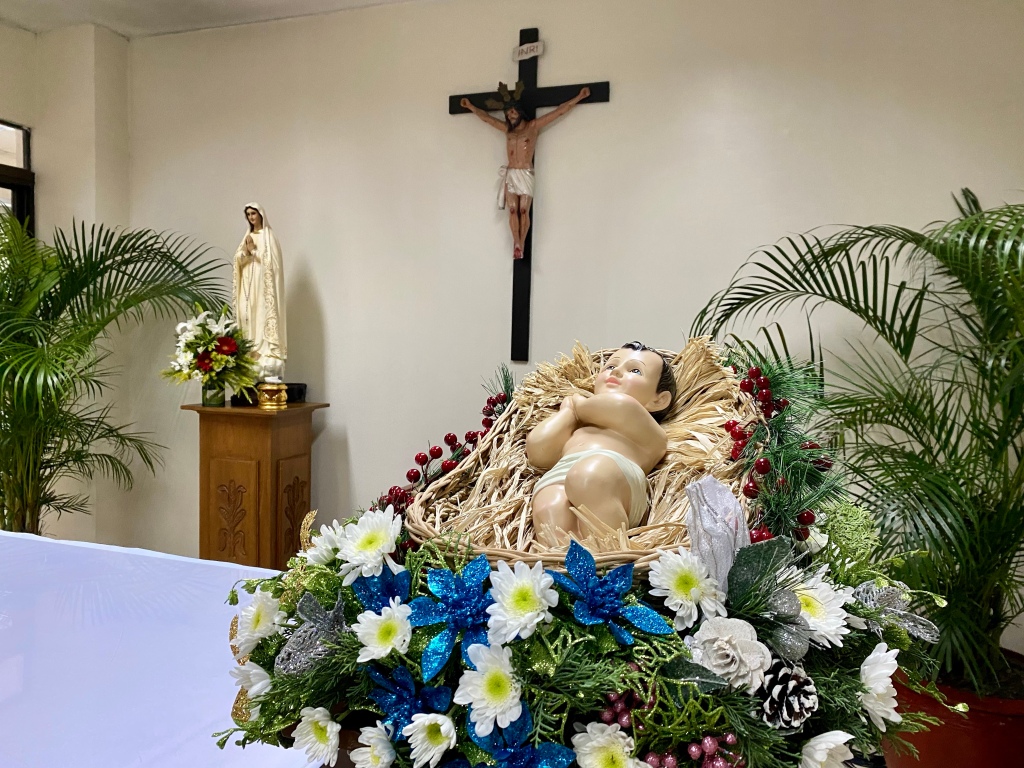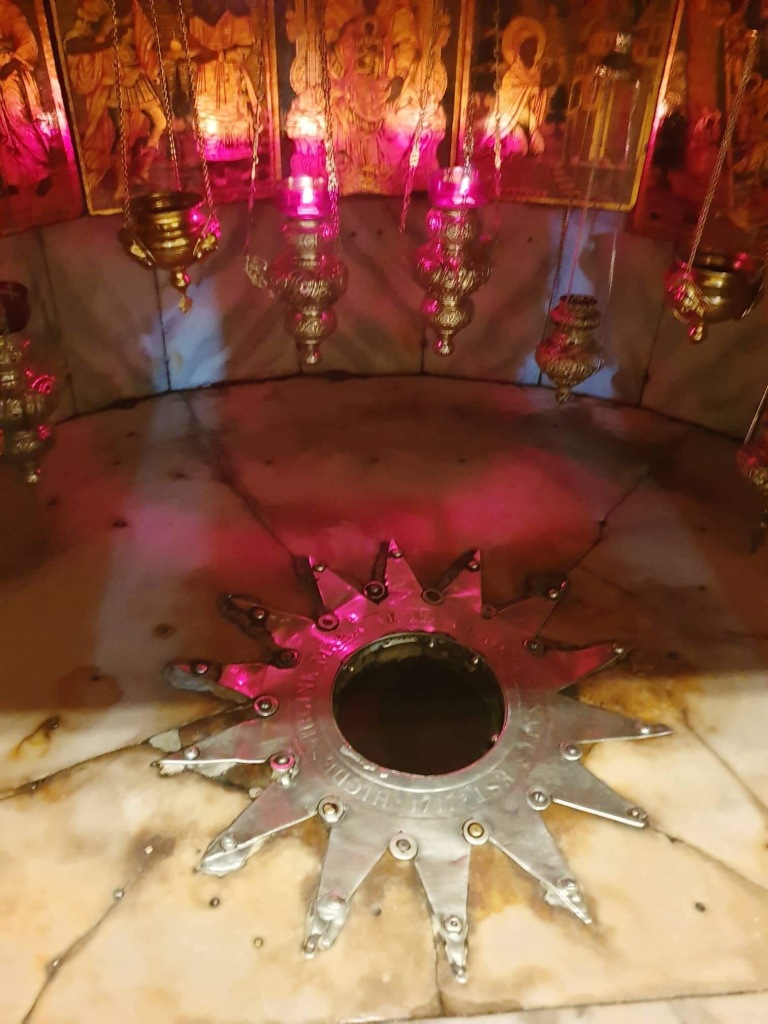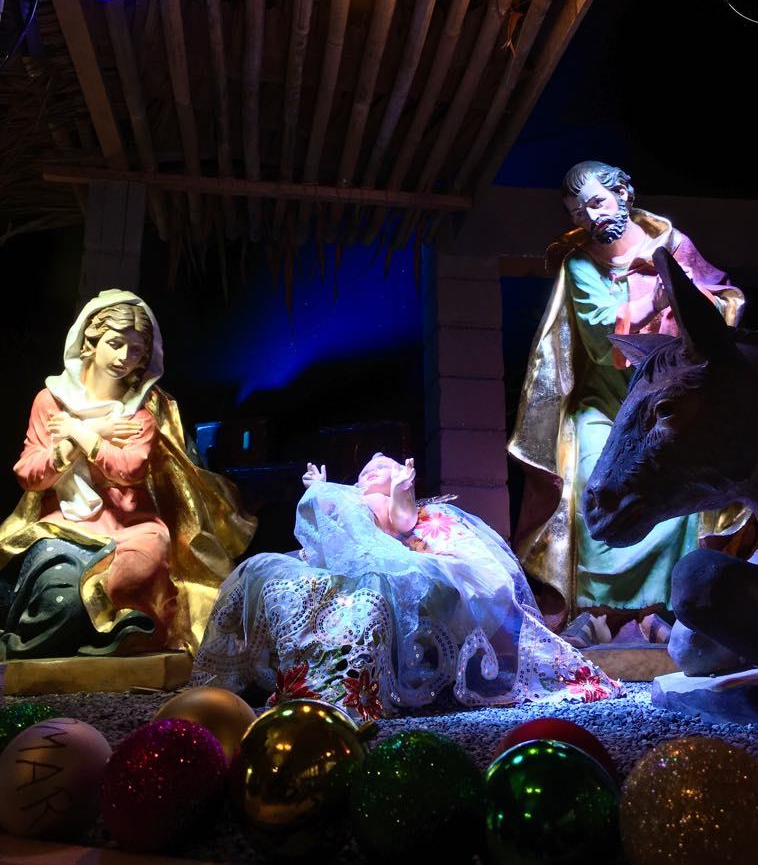196 total views
Maligayang Pasko sa inyo at inyong mga mahal sa buhay! Of all the Christmas greetings from around the world, perhaps our Maligayang Pasko in Filipino is one that truly captures the spirit and essence of Christmas.
Pasko is from the Hebrew word Pesach that means to “pass over” or simply what we refer to as the Passover or Pasch. It is the same greeting we have during Easter, Maligayang Pasko ng Pagkabuhay that literally means “Merry Passover/Pasch of the Resurrection”.
Yes, it is reminiscent of the exodus of the Chosen People from Egypt into the Promised Land during the time of Moses, the very center and point reference of our salvation history.
Normally, we use the word Pasch more prominently during the Triduum of the Lord’s Passion, Death, and Resurrection from Holy Thursday to Easter because that is the Lord’s Passover from death to life. However, if we reflect more deeply as the Church teaches us, the Lord’s Pasch actually began at Christmas when the Son of God passed over from heaven into earth when Jesus Christ became human born today more than 2000 years ago in Bethlehem.

Like Easter, Christmas is a sacred moment that happens daily, not just a date once a year, when God entered in his immense spiritual reality the world to affect and change to better our material world. It is a passing over by Jesus from eternal to temporal time so that heaven and earth, man and God are again united into one.
Christmas is therefore a blessed event, a most sacred moment of holy communion of man and God in Jesus Christ that continues to this day in the most regular yet miraculous reality of life going on amid many joys and pains, victory and defeats, prosperity and poverty, health and sickness, light and darkness and even in death.
Christmas is a sacred moment where the all-powerful and all-loving God gets intimately involved with the weak and sinful people and the whole limited creation with all the humor and irony in life.
This we immediately find in the mystery of Incarnation of Jesus Christ eloquently expressed to us by John the Beloved:
In the beginning was the Word, and the Word was with God, and the Word was God. He was in the beginning with God. all things came to be through him, and without him nothing came to be. /what came to be through him was life, and tis life was the light of the human race; the light shines in the darkness, and the darkness has not overcome it. And the Word became flesh and made his dwelling among us, and we saw his glory, the glory as of the Father’s only Son, full of grace and truth.
John 1:1-5, 14
See and feel the formality yet the simplicity and profundity by John expressing in every line a sacred moment with God who is love and has always loved us immensely. Feel the drama of the Incarnation when the Word became flesh which we take for granted specially in praying daily the Angelus with that beautiful expression, “And the Word became flesh, and dwelt among us” which is Christmas!
What a sacred moment we are reminded daily by our prayers and sacraments that only those willing to pass over from material world to spiritual world – even for a moment – would surely realize and experience God present and coming to us in Jesus every moment of our lives.
How ironic that people today find it so easy to accept Hollywood’s stories of the virgin births of Anakin Skywalker or Darth Vader of Star Wars and John Connor of Terminator but find it so difficult to believe or even accept the virgin birth of Jesus by Mary.

Pope emeritus Benedict XVI explains to us that there are two moments in history when God intervened directly in the material world: at Christmas with the virgin birth of Jesus by Mary and at Easter when Jesus rose from the tomb in which he did not experience corruption. According to the Holy Father, these two moments are a scandal to the modern man who had kept God merely in the spiritual domain but not in the material world (Jesus of Nazareth, the Infancy Narratives, pp.56-57).
If God does not have power over the material world and would simply be confined in the spiritual world, then he is not God at all. But, as we heard from the gospel accounts, God never acted irrationally nor against nature; in fact, in the virgin birth and resurrection of Jesus, God had enhanced our human nature and the natural world!
See Luke’s wonderful descriptions of the birth of Jesus:
In those days a decree went out from Caesar Augustus that the whole world should be enrolled. This was the first enrollment, when Quirinius was governor of Syria. So all went to be enrolled , each to his own town. And Joseph too went up from Galilee from the town of Nazareth to Judea, to the city of David that is called Bethlehem, because he was of the house and family of David, to be enrolled with Mary, his betrothed, who was with child.
Luke 2:1-5

Luke is actually the evangelist par excellence of Christmas (and Easter too!). The most artistic and master storyteller of the four evangelists, Luke has the ability to see every moment in Christ’s life from the big picture like the geopolitics of that time down to the most personal. See how he situated us into the setting of the world at that time, from the wide-angle shot of the Roman emperor trying to establish more control in the world ordering a census that zoomed into the birth of Jesus Christ in a manger “because there was no room for them in the inn”.
What a great moment if we try to enter the scene which happens daily: the more we try to control our lives and others, the more God works in silence in the background without us realizing his coming until that day we realize our mistakes and sins.
In telling us the story of the birth of Jesus, we are reminded how so often in life that what is happening in the world is not the whole story, everything seems to be unrelated at all that we feel so detached when in reality, everything is a result of the Divine Plan, of God working silently for our own good. It is at the end when things finally fall into their right places and we discover how God has always been present with us in every moment of our lives without us noticing him at all!
But there lies the key to Christmas: in the scattered events and fragments of daily living, we try to see the whole picture in the eyes of God, in Jesus Christ who became human like us to link us with the Divine and find meaning and fulfillment in life.
Another things we find with Luke: he is the only one who tells us the story of the shepherds coming to Jesus. On the surface, it seemed like those scenes in true to life movies where some “dramatizations” are staged to add color to the story. Why? Because after this scene, there would be no more shepherd in Luke’s gospel except the parable of the lost sheep. It is in John’s gospel where we find Jesus claiming himself to be the Good Shepherd.

Again, another sacred moment being offered us by Luke: shepherds were the lowliest people at that time, among those considered as the poorest of the poor. They were considered as troublemakers and thieves that is why they worked in the most hostile environment and situation. They were looked down upon at that time because they would not even give contributions to the temple or synagogue. They were outcasts.
But, are we not like them most often? We have our own world to take care that we do not mind at all whatever is happening in the political and economic spheres and much less the religious aspects of life. And Jesus precisely came for us to get us involved with the world and be more engaged with life and living.
This Christmas day, everybody is resting, chillin’ and relaxing, enjoying the cool, crisp weather and wonderful ambience. As we enjoy Christmas, let us savor some moments with Jesus in the silence of our hearts. Let us set aside all our worries and fears, regrets and anxieties to simply join the angels and the shepherds in being caught in the moment of Christ’s birth as we put everything on hold, trusting that something good and better is coming to us. Let us learn to lose ourselves in this moment with Jesus, to join in his passing over. Amen.
Maligayang Pasko!

















